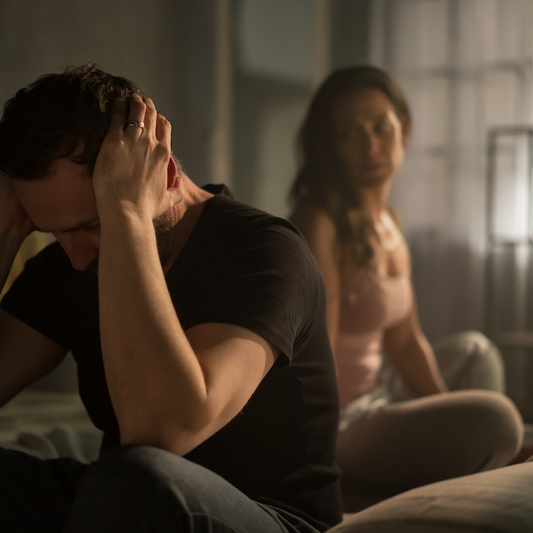
Gonorrhoea Treatment
Gonorrhoea Treatment
Gonorrhoea is a sexually transmitted infection (STI) that spreads from one sexual partner to the other in the event of unprotected sex, including oral sex, anal sex, and vaginal sex. Once diagnosed, it is simple to get effective gonorrhoea treatment.
Anyone can get the infection through sexual contact with body parts such as the penis, vagina, mouth, or anus of an infected partner, and it can cause long-term complications and health concerns if not treated for a prolonged period of time, which is why it is important to see a healthcare professional that can provide medical advice and conduct an STI test immediately if you experience any symptoms.
In this article, we'll explain what to look out for and what to expect during the treatment of gonorrhoea - we'll also answer a few frequently asked questions for your peace of mind.
This article is strictly informational - you should visit a doctor for diagnosis and proper treatment to prevent serious medical conditions.
What is Gonorrhoea?
The Neisseria gonorrhoeae bacterium causes gonorrhoea. This type of bacterium may infect the fallopian tubes of females or the cervix and uterus as well. It also affects other areas that may be moist such as the vagina, throat, eyes, anus, or the urethra of both the sexes.
Gonorrhoea, like chlamydia, is a rather common sexually transmitted infection and is most commonly found in young adults who are sexually active and often engage in unprotected sexual intercourse/activity. Usually, those below the age of 25 are the most affected.
Prevention methods include either abstaining from sex altogether or ensuring the use of a condom or other barrier method/s. The disease usually spreads because infected people are often asymptomatic, and the infection goes undetected and, thus, untreated.
Although many people infected with the disease are asymptomatic, it does not mean they do not require medical attention.
Having open and honest conversations with potential sexual partners also helps to prevent the spread of STIs. When was their last STI test? Have they shared their results with you? With iPlaySafe, you can test at home and receive your results through the integrated app in the form of a 'play badge', which can then be shared with a potential partner, and vice versa.
Understanding the risk factors and advised treatment of gonorrhoea is important to maintain good sexual and physical health.
Gonorrhoea treatment for men
If you are diagnosed with the disease, gonorrhoea treatment usually entails a short course of antibiotics. However, sometimes Neisseria gonorrhoeae does not succumb to drugs as easily. This is why sometimes treatment is given in the form of injections.
A single dose of intramuscular ceftriaxone is recommended, which is an antibiotic injection. This, combined with one dose of oral azithromycin, is the usual course of medication to treat the disease.
Men must also stop all sexual relations while being treated for the condition and should ideally undergo regular testing after they resume sexual activity. They should also ask all of their sexual partners to get tested if they test positive to prevent the disease from spreading and prevent any permanent damage.
Untreated gonorrhoea can result in severe complications in males, including fertility issues. Males may also develop an infection called epididymitis in their testicles.
Additionally, if you have the disease, this can increase your chances of contracting HIV-AIDS through unprotected sex. It can also lead to a gonococcal infection if treatment is not opted for immediately.
This infection occurs when gonorrhoea bacteria reach the bloodstream and cause permanent damage. This is likely to occur within two weeks of getting gonorrhoea if the condition is not treated.
Gonorrhoea treatment for women
Gonorrhoea can be more problematic for women if not treated, but as mentioned before, it is difficult to detect. However, females suspecting symptoms should undergo the same STD laboratory tests above to get a diagnosis and refrain from engaging in sex or similar activities if they get a positive diagnosis until treatment is complete.
Treatment for women also includes an antibiotics course. Because sometimes the disease is resistant to medication, the advised treatment by doctors would include an antibiotic injection of ceftriaxone and azithromycin given orally.
If gonorrhoea is not treated in women, it can result in complicated infections such as PID, infertility, and/or an ectopic pregnancy. An ectopic pregnancy is a pregnancy that is not contained within the uterus, and this can lead to death or permanent damage to both mother and child.
Females should be concerned about their physical and sexual health if they notice any symptoms within themselves or their partners and must consult a doctor right away.
Treatment for gonorrhoea over the counter
Uncomplicated cases of gonorrhoea can be treated with an antibiotic injection of ceftriaxone and one dose of azithromycin, but these drugs are not available over the counter. Unfortunately, there are no over-the-counter drugs to treat the condition, and patients are requested not to self-treat themselves.
It is imperative to consult a doctor if any symptoms are experienced by a person or any people they have been involved sexually with. A pregnant woman may transfer the disease to the unborn child who may have a serious condition in their eyes or experience blindness after birth.
What are the symptoms of gonorrhoea?
As mentioned above, many men and women may be asymptomatic, so it may be difficult to detect whether your sexual partner or you have gonorrhoea. However, there are certain signs and symptoms that you can look out for to determine when it may be time to visit the medical experts.
The symptoms differ for males and females, as obviously, both have separate sexual organs and different anatomy.
Males
It may take anywhere from 2 days to two weeks for symptoms to become evident after infection. In males, the symptoms are usually evident after a few days - the first of them being a burning sensation when urinating.
As the problem persists, men may also experience;
- The need to urinate more often
- An unusual discharge from the penis that looks like pus and is a white, yellow, green, or similar colour
- A swollen penis or some penis pain
- A consistent throat infection.
Females
It is often more difficult to detect gonorrhoea in women because the symptoms may be misconstrued as something else, such as a yeast infection or other bacteria.
However, it is imperative to detect the disease and get proper treatment because the infection is more likely to have long-term health complications for women or those with female organs. If left untreated, it can damage the reproductive system and result in pelvic inflammatory disease (PDI).
Some of the most common symptoms for women are;
- Unusual vaginal discharge in a watery or creamy state,
- Irritation while urinating or the need to urinate more frequently
- More bleeding than usual during menstruation,
- A consistent sore throat or temperature
- Unusual pain during sexual intercourse or in the lower abdominal area
Testing for Gonorrhoea
If you suspect you have gonorrhoea, you need to either purchase a home test kit or seek out a healthcare professional to carry out a test. A sample of liquid will be taken from the area experiencing symptoms with a cotton swab, or, in the case of men, a urine sample may need to be provided.
Blood or fluid may be drawn from the infected area with a needle if a joint infection is suspected. A stain is then added to the sample, and the healthcare professional or laboratory technician observes whether cells react to it under a microscope.
The sample may also be kept in a specially incubated dish to foster growth. Gonorrhoea bacteria is likely to form if the disease is prevalent in the sample.
However, test results using this method are likely to take at least 24 hours, and a final diagnosis can be made within a few days- 3-4 days to be more precise.
FAQs
What happens if I don't get treatment for gonorrhoea?
If gonorrhoea is left untreated, it may have dire consequences for patients- both male and female. It may result in pelvic inflammatory disease in females if the bacteria spread into the fallopian tubes or uterus. It can also cause infertility or an ectopic pregnancy.
In men, untreated gonorrhoea can cause pain in the testicles or make them sterile. It can also lead to gonococcal concerns for both the sexes and increase the risk of contracting HIV.
How is gonorrhoea transmitted?
Gonorrhoea is transmitted through sex and can be transmitted through contact with the mouth, anus, vagina, penis of an infected person. The bacteria is usually prevalent in vaginal fluid or penis discharge.
It can also be transmitted by sharing sex toys.
How can gonorrhoea be prevented?
The disease can be prevented by being cautious if you are having unprotected sex with multiple partners. Ensuring your sexual partner(s) are taking regular STI tests is an important practice of safe sex. Being in a healthy exclusive relationship can reduce your chances of getting the infection as long as your partner abides by the same conditions.
You can also engage in safe sex by using a condom for sexual intercourse or special condoms used for both males and females during oral sex. Refrain from sharing sex toys or always properly clean them before use.
How can I get tested for gonorrhoea and other STIs?
Test at home with iPlaySafe. Order a box online, and collect and return your samples to us with free shipping. You'll get your results privately through the app within 2-5 days.
Other STIs such as chlamydia, herpes, and similar conditions may also be of concern. Therefore, it is important to regularly get tested if you notice any symptoms.
Should I advise previous sexual partners of a positive gonorrhoea test?
Absolutely! You should ask any sexual partners you have had contact with in the past few months to get tested for gonorrhoea to prevent the disease from spreading or causing any permanent damage.
It is also advised to refrain from sexual relations while you are undergoing treatment for the condition.

























